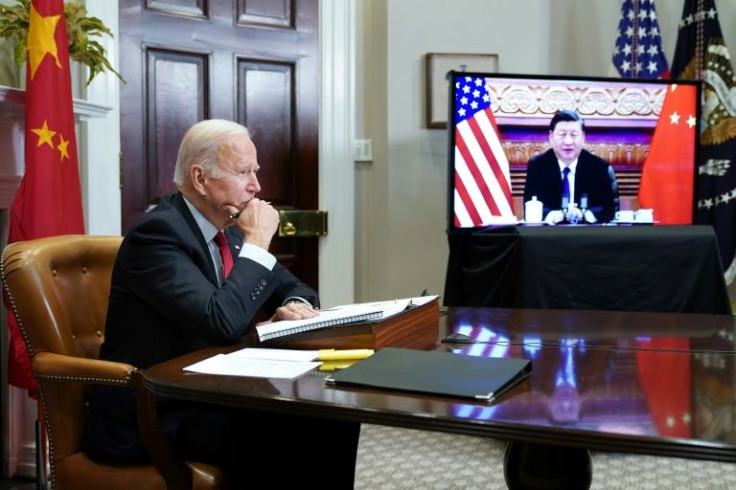US Plan To Boycott China Winter Olympics Diplomatically Politicizes Global Sport

After the bonhomie, here comes the spoilsport. Even as experts discuss the outcome of Xi-Biden virtual summit, the U.S. President said on Thursday that he is considering diplomatic boycott of 2022 Winter Olympics. A U.S. decision not to send diplomats to the 2022 Winter Olympics in China would be a rebuke of Chinese President Xi Jinping just days after the much-trumpeted Xi- Biden virtual summit held on Nov 15..
President Joe Biden said that he is considering to diplomatically boycott the 2022 Winter Olympics over China's alleged human rights abuses, particularly the alleged genocide among the Uyghur Muslims in the north-western Xinjiang autonomous region, bordering Kyrgystan and Tajikistan.
It's "something we are considering," Biden said about the sporting event, set for Beijing from Feb. 4-24. The U.S. president is expected to give his nod at this month-end.
President Xi held Nov. 15 the virtual summit with Biden to curb tensions between the two nations, which flared over trade, Taiwan, Covid-19 pandemic, and other flashpoints.
Though the White House described the three-and-a-half hour virtual summit as meaningful on multiple policy issues, the Olympics issue did not figure on the agenda .
The U.S. Senate had passed the Bill, confirming a diplomatic boycott, in June this year. If Biden initiates a diplomatic boycott, U.S. athletes can take part as normal but it would play spoilsport on the U.S.-China relationship, and increase pressure on other nations to follow suit.
In a normal circumstance, the U.S. sends a roster of high-profile dignitaries, often headed by the vice-president or the first lady, to take part in the Olympic events, including the opening and closing ceremonies.
Led by First Lady Jill Biden, the U.S. delegation was present at the most recent Summer Olympics in Tokyo in July. When he was vice president, Biden and his wife attended the 2010 Winter Games in Canada.
Beijing has become the first city to host both the Summer and Winter Olympics. With millions of viewers expected to tune, China is banking on the Winter Games to improve its battered reputation on the world stage. Comprising a total of 109 medal events across 15 categories, the sporting event will be held across three zones: Beijing, Yanqing, and Zhangjiakou.
The U.S. is among several western nations to charge China with committing genocide in Xinjiang based on reports by human rights agencies like Amnesty International and Human Rights Watch. Their reports had alleged that the Muslim ethnic Uyghurs are beings used as forced labor and their women sterilized.
"We have serious concerns about the human rights abuses we've seen in Xinjiang," White House press secretary Jen Psaki said during a press briefing Nov 17.
The U.S. has also expressed alarm over the crackdown on the pro-democracy movement in Hong Kong, Beijing's threats against Taiwan's independence, human rights abuses in the Tibetan autonomous region.
China has denied allegations of human rights abuses and crimes against humanity in Xinjiang, claiming the Uyghurs and other ethnic minorities are sent to "re-education" camps to combat separatism.
The U.S. president doesn't have the power to order a full U.S. boycott, a sole prerogative of the U.S. Olympic and Paralympic Committee (USOPC), which shot down the idea last month. Sarah Hirshland, the first woman chief executive officer USOPC, had urged the Biden administration not to mix sports with international relations.
With Biden hinting at a diplomatic boycott, the Games is already politicized.





